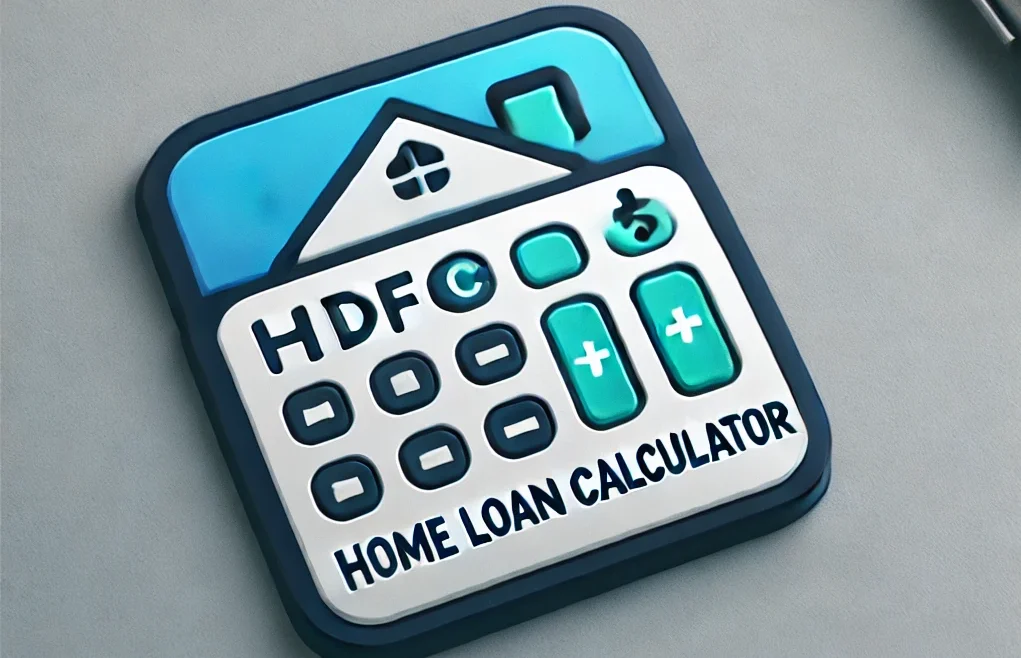When deciding between purchasing a property through an HDFC home loan or renting a property, one of the most important factors to consider is the tax benefits of each option. Both homeownership and rental income offer specific tax advantages, but they differ in terms of the deductions available, financial implications, and long-term benefits. In this article, we will compare the tax benefits of buying a home with an HDFC home loan versus renting and earning rental income, helping you make an informed financial decision.
Tax Benefits of Taking an HDFC Home Loan
When you take an HDFC home loan, you can claim tax benefits under two major sections of the Income Tax Act:
1. Section 80C – Deduction on Principal Repayment
Under Section 80C, you can claim a deduction of up to ₹1.5 lakh per year on the principal repayment of your home loan. This deduction is available if you buy a self-occupied or rented-out property using a home loan. It also includes stamp duty and registration charges paid during the purchase of the house, within the overall limit of ₹1.5 lakh.
Key Points:
- This deduction is available only after the construction of the house is complete.
- The property cannot be sold within five years of possession. If you sell the property within this time frame, any tax benefit claimed under Section 80C will be reversed and added to your income for the year of sale.
2. Section 24(b) – Deduction on Interest Payment
Section 24(b) allows you to claim a deduction on the interest paid on your home loan. For self-occupied properties, the maximum deduction allowed is ₹2 lakh per year. However, if the property is rented out, you can claim a deduction for the entire interest paid on the loan, with no upper limit. However, there is an overall cap on loss from house property that can be set off against other income, which is ₹2 lakh in a financial year.
Key Points:
- To claim the deduction under Section 24(b), the construction of the house must be completed within five years from the end of the financial year in which the loan was taken.
- If construction takes longer than five years, the maximum deduction for interest paid is reduced to ₹30,000 per year for self-occupied properties.
3. Section 80EE and Section 80EEA – Additional Deductions
Under Section 80EE, first-time homebuyers can claim an additional deduction of ₹50,000 on the interest component if the loan amount does not exceed ₹35 lakh and the value of the property is within ₹50 lakh.
Under Section 80EEA, there is an additional deduction of ₹1.5 lakh on interest payments for affordable housing if the loan is sanctioned between April 1, 2019, and March 31, 2022, and the stamp duty value of the property does not exceed ₹45 lakh.
Tax Implications of Rental Income
If you own a property and rent it out, the rental income you earn will be taxable under the head Income from House Property. However, the tax liability can be reduced by various deductions available under the Income Tax Act.
1. Standard Deduction on Rental Income
Under Section 24(a), you can claim a standard deduction of 30% on the net annual value (rental income minus property taxes). This deduction helps in reducing the taxable rental income without requiring you to provide proof of actual expenses incurred on the property.
2. Deduction on Interest Paid (Section 24b)
As mentioned earlier, if you have taken a home loan for a rented-out property, you can claim a deduction on the entire interest paid on the loan. However, any loss under the head Income from House Property is capped at ₹2 lakh per year, and the excess can be carried forward for up to 8 years to be set off against future rental income.
3. Municipal Taxes Paid
Any property taxes or municipal taxes paid during the year can be deducted from the gross rental income before applying the standard deduction and interest deduction. This reduces the taxable rental income and, in turn, your tax liability.
Tax Benefits Comparison: HDFC Home Loan vs Rental Income
| Aspect | HDFC Home Loan (Self-Occupied) | Rental Income (Rented Property) |
|---|---|---|
| Principal Deduction (Sec 80C) | Up to ₹1.5 lakh | Not applicable |
| Interest Deduction (Sec 24b) | Up to ₹2 lakh | Full interest, subject to ₹2 lakh cap on loss from house property |
| Standard Deduction | Not applicable | 30% of net annual rental income |
| Municipal Tax Deduction | Not applicable | Deductible from gross rental income |
| Additional Deduction (80EE/EEA) | Up to ₹1.5 lakh on interest for affordable housing | Not applicable |
| Taxation on Income | No tax on notional income for self-occupied property | Rental income taxable as per applicable slab rates |
Which Option Provides Better Tax Benefits?
The tax benefits of an HDFC home loan and earning rental income largely depend on your specific financial situation, including your income bracket, the loan amount, and whether the property is self-occupied or rented out.
Scenario 1: Self-Occupied Property with HDFC Home Loan
- You can claim up to ₹1.5 lakh under Section 80C on principal repayment and up to ₹2 lakh under Section 24(b) on interest payments.
- This can result in tax savings of up to ₹1 lakh per year (assuming you’re in the 30% tax bracket), but the benefits are limited to ₹3.5 lakh in deductions per year.
Scenario 2: Rented-Out Property
- If you rent out the property, you can claim the entire interest paid on the home loan under Section 24(b). Although the set-off against other income is capped at ₹2 lakh, any excess loss can be carried forward for 8 years.
- You can also claim a standard deduction of 30% on the rental income and deduct property taxes, further reducing your taxable rental income.
Which is Better?
- For Homeowners: If you’re using the home for personal purposes, the tax benefits on an HDFC home loan (under Sections 80C and 24(b)) provide substantial relief, especially when the interest component is high in the initial years of the loan.
- For Investors/ Landlords: If you’re purchasing the property as an investment and earning rental income, the tax benefits on interest repayment (without an upper limit) and the standard deduction on rental income offer significant advantages. However, your tax liability depends on the rental income you earn.
Conclusion
Choosing between an HDFC home loan and renting out a property involves more than just tax benefits. While both options provide significant tax deductions, a home loan offers structured relief for homeowners under Sections 80C and 24(b). On the other hand, renting out property provides more flexibility in terms of interest deductions and the ability to claim rental income deductions, but comes with the responsibility of managing rental property.
Evaluate your long-term goals, financial status, and income tax bracket to determine which option suits you best. Consulting a tax professional can also help you maximize your tax savings.

